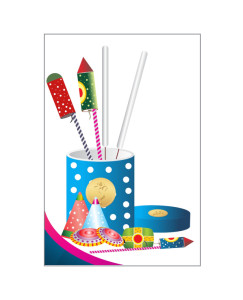By Keith Kerfeld, Attorney and David Wolf, Attorney
Published by Child Injury Lawyer Network
 During the month of July and especially on or near the Fourth of July, fireworks are commonly ignited. Some fireworks are set off at the family home while others are at a more former celebration like a public park, downtown area, community center, or stadium. It is vital that fireworks are ignited in the safest manner possible. Unfortunately, despite the known risks of fireworks, children are injured every year. Many such personal injuries are preventable.
During the month of July and especially on or near the Fourth of July, fireworks are commonly ignited. Some fireworks are set off at the family home while others are at a more former celebration like a public park, downtown area, community center, or stadium. It is vital that fireworks are ignited in the safest manner possible. Unfortunately, despite the known risks of fireworks, children are injured every year. Many such personal injuries are preventable.
Many states like Minnesota outlaw certain types of fireworks. According to the Owatonna, Minnesota Police Department Captain Jeffrey Mundale, “The law and rule of thumb: Anything that flies or explodes is illegal in Minnesota. Explosive and aerial fireworks are prohibited for public sale, possession, and use.” For other fireworks like sparklers and party poppers, the fireworks cannot be ignited or displayed in public areas like parks, roads, schools, and community centers. See Officials Offer Tips for Fireworks Safety in Minnesota.
Despite laws like the one above, many individuals still ignite fire crackers and bottle rockets to show their patriotic spirit and love of the country. Unfortunately, safety measures seem to take a back seat to the celebration and children are injured along the way. Here is a frightening statistic or two. It has been reported that in 2013 – there were over 11,000 people evaluated and treated in emergency rooms during fireworks injuries. Of those treated, over 4,000 fireworks victims were under the age of 15 years old. Sparklers, which seem to be the most mild form of fireworks, accounted for almost 80 % of the injuries to children under the age of 5 years old.
Fireworks safety and supervision, like swimming and water safety, cannot be done on a sporadic or inconsistent basis. Furthermore, any time that there are fireworks ignited or near or within the reach of children, adult supervision should be constant and diligent. This is not the time to be distracted by mobile phones, texts, and web browsing.
If a child is injured during a private or public fireworks display, there may be a case or claim that can be pursued on behalf of the injured child. This will depend on the facts and circumstances related to the injury. Essentially, four elements will need to be established to proceed forward:
1. Duty;
2. Breach of Duty;
3. Causation; and
4. Damages.
If a child is injured due to the fault or negligence of a neighbor, community center, or another person / entity, there could be a claim or case pursued for compensation for the fireworks related personal injuries. Whether it is an eye injury or burn injuries, the child would be entitled to compensation for medical bills – past and future as well as pain and suffering related damages. One factor, which is not a core legal element, that is an important part of the evaluation of the case is the availability and coverage of liability insurance. Let’s say a neighbor ignites a bottle rocket and it sails into your yard and into the face of a child who happens to be outside playing with a friend. Certainly, the injured child is an innocent bystander who was on his own property at the time of the incident. Had the neighbor been more careful or better yet had never ignited or set off the bottle rocket, the incident would not have taken place. Under these general facts, a case or claim could be pursued. However, from a practical standpoint in most instances, homeowner’s insurance – that provides coverage for this type of incident and injury – will be key to the successful pursuit of this matter.
The book titled – The ABCs of Child Injury – Legal Rights of the Injured Child – What Every Parent Should Know – has chapters on Homeowner’s Insurance, Theme Parks and Attractions, Swimming and Waterpark Injuries, Automobile Accidents, Day Care Center Injuries, School Injuries, and other topics. You can get this book for free at The ABCs of Child Injury.
 Child Injury Lawyer Blog
Child Injury Lawyer Blog

